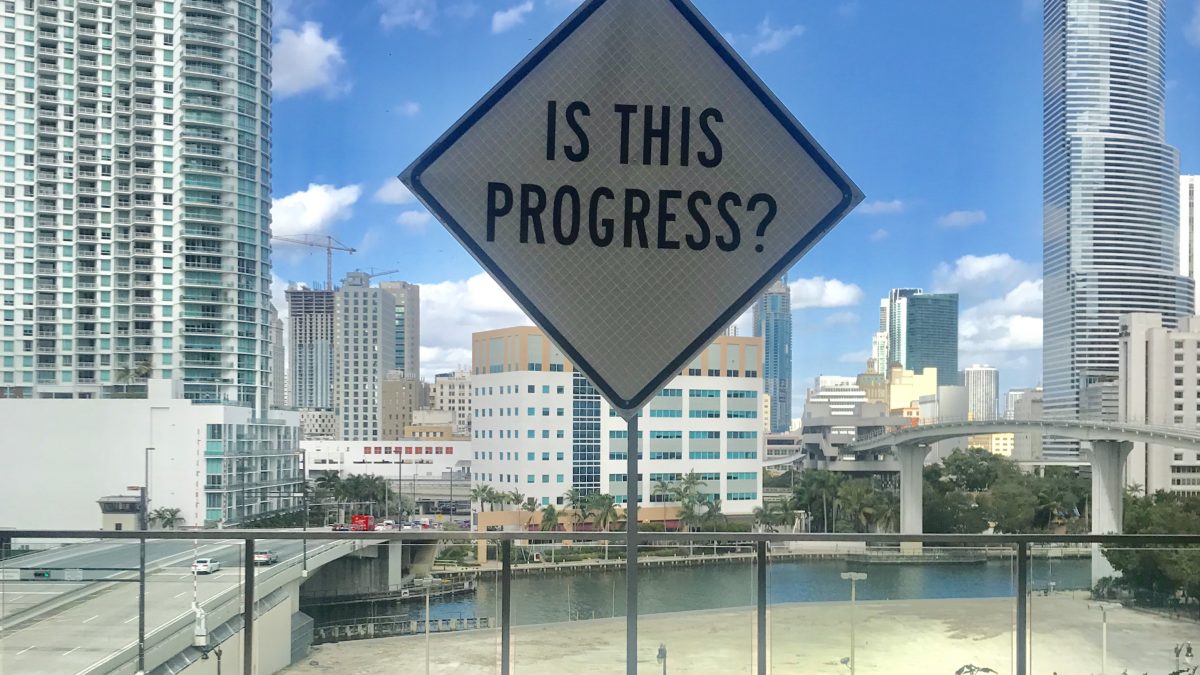Por Sheilla Cohen.
Vivir amalgamados dentro de uno de esos monumentales edificios de cuarenta pisos, con doscientos pequeños departamentos, sin cruzar tan solo una palabra con nuestros vecinos de a un lado. Y tener que pasar por esos eternos e incómodos silencios mientras esperamos en el elevador para bajar y salir corriendo a meternos en nuestros automóviles para estancarnos en el tráfico, durante una o dos horas, dependiendo de que tan lejos vivamos de nuestro trabajo.
Para trasladarnos a otro de esos colosales rascacielos con miles oficinas y cientos de empleados, que permanecen una jornada laboral de ocho horas –aunque parezcan una eternidad– frente a sus escritorios sin ver ni un solo rayo de luz solar, esperando desesperadamente para que llegue la tarde y salir corriendo para finalmente poder ir a cenar en alguno de los miles de restaurantes, que abren y cierran cada semana, al centro comercial a pasar nuestro único tiempo de ocio viendo los escaparates de las tiendas pensando en nuestras próxima compra, o simplemente ir al bar de enfrente por una cerveza para mitigar el estrés y la ansiedad que nos genera vivir de esta manera.
¿Ese es el costo que estamos dispuestos a pagar por el progreso?
La globalización y el capitalismo han fracasado en cumplir su única promesa: que el progreso nos brindará un estado de bienestar en el cual todas las necesidades básicas serán cubiertas, y por consiguiente, seremos felices. Sin embargo, a pesar de que la realidad dista mucho de ese idílico sueño, éste es aún considerado por muchos el mejor sistema para vivir.
El desbordamiento de inmigrantes en las fronteras, que salen de sus países de origen por la inestabilidad política y económica, en búsqueda de mejores oportunidades en las capitales industriales, ha provocado una sobre población y centralización en las grandes urbes. La hambruna, la violencia y la extrema pobreza son solo algunas de las crisis humanitarias que enfrentan los países tercermundistas.
Por no hablar del calentamiento global, la desigualdad social y la falta de regularización de los mercados bursátiles y los monopolios tecnológicos que han obtenido libre acceso a nuestra información personal y patrones de comportamiento (bajo nuestro consentimiento y sin limitación alguna), para vendérselos a los gobiernos con fines de vigilancia, ¿y por qué no?, también a las marcas para crear productos innecesarios de acuerdo a nuestros intereses. Son solo algunas de las repercusiones negativas que este sistema político y modelo económico ha tenido en nuestra sociedad.
La sociedad occidental tiene mucho más de lo que realmente necesita, pero en nuestra ambición por tener el máximo poder y la codicia por acumular más dinero, hemos perdido nuestro camino pasando por inadvertido el verdadero significado de la vida por estar persiguiendo constantemente el éxito, persiguiendo lo que está fuera de nuestro alcance, deseando aquello que no es nuestro y quizás nunca lo sea.
El capitalismo es una máquina de deseos que jamás se quedará sin batería, por eso nos sentimos constantemente insatisfechos con lo que tenemos; porque siempre nos estamos comparando con lo que los otros poseen, como si estuviéramos corriendo una maratón para alcanzar el mismo objetivo: el éxito.
Pero, ¿cuál es el significado de este concepto tan subjetivo que estamos tan obsesionados por conseguirlo?
La realidad, es que solo se trata de una simple palabra que utilizamos en nuestro complejo vocabulario, creada para motivarnos a dirigirnos siempre hacia delante, sin mirar atrás, para alcanzar una meta que la mayoría de las veces, ni siquiera es nuestra, y así convertirnos en una versión ajena a nosotros, un ideal impuesto que nos promete que obtendremos la felicidad que tanto deseamos, siempre y cuando sigamos los pasos que nos conducirán a ese objetivo.
Sin embargo, en esa búsqueda constante por el éxito y la felicidad, nos hemos convertido en personas superficiales e insatisfechas, que siempre estamos buscando la novedad; porque no soportamos lo cotidiano, aunque curiosamente en lo ordinario se encuentra lo extraordinario.
Dicho esto, a menudo me pregunto; ¿si el progreso realmente nos ha hecho más felices que antes? En ese caso, ¿es el estado del bienestar la mejor forma de vivir o hay otras modelos alternativos para tener una vida más plena?
Pero aún más importante, vale la pena cuestionarse a uno mismo, ¿si realmente estamos viviendo una vida significativa? Porque si no es así, entonces, ¿qué estamos haciendo para cambiar el status quo en el que hemos estado viviendo hasta este momento?
The cost of progress
By Sheilla Cohen.
Living stuck up inside one of those monumental forty-story buildings with two hundred small apartments, not even once exchanging a single word with our next door neighbors. Dealing with those eternal and uncomfortable silences, while we wait in the elevator to go down and run to get into our car, to get stuck in traffic for one or two hours depending how far we live from our job.
In order to get to another of one those colossal skyscrapers with a couple of hundred offices and thousands of employees that remain, every single day, for eight long hours –what seems to be a eternity– in front of a desk, without seeing the sunlight, waiting for the afternoon to come to desperately get the hell out from there, to have dinner in one of those fancy restaurants, that open and close every week, go to the closest shopping malls to spend our only leisure time, window shopping thinking about our next purchase, or simply end up going to the nearest bar for a drink in order to release the stress and anxiety that provokes us leaving in this hectic lifestyle. Is that the cost of progress we are willing to pay?

Globalization and capitalism have failed to accomplish their only promise: that progress will bring a welfare state, in which all our basic needs will be satisfied and therefore we’ll find the happiness we so much cherish. Yet somehow, even though our reality is far away from that idilic dream, it’s still considered by the majority of people the best system to live by.
Migration overflow, global warming, social inequality, are only few negative consequences that this political system and economical model has brought us to our world. Probably that is the reason why the nationalistic discourse has a huge resonance in our society nowadays because every country is going through an identity crisis.
Although, globalization has brought so many economical benefits, it also has leaded us to a homogenization of our culture. No to mention other negative effects such as; the overflow of immigrants that risk every day their lives crossing the borders in search of better opportunities due to the political and economic instability in their countries of origin, which have caused overpopulation and centralization and in these industrialized capitals.
Starvation, violence and extreme poverty are only few of the humanitarian crisis Third World countries are suffering while others have the luxury to throw away the excess of food they produce. The number of natural disasters that have devastated entire communities and caused millions of deaths due to climate change. Global warming is one of the many costs of progress or should I say of “industrialization” without any regulation.
Another one is how high tech monopolies have obtained free access to our personal information and behavior patterns with our consent and under any regulation whatsoever, to sell them to our governments for surveillance purposes and other companies for them to create personalized products according to our interests, but which in most cases are quite unnecessary, like most of what the things they are made nowadays.
The Western society has far more than it really needs, but in our ambition for power and greed for money we have lost our way, missing the real meaning of life by constantly pursuing what is within our reach, desiring what is not yet ours and perhaps will never be.
Capitalism is a desire machine that never runs out of battery, that is why we are chronically unsatisfied with what we have, because we are always comparing ourselves with others as if we are running a marathon to achieve the same goal: success. But what is the meaning of this subjective concept we are so obsessed to accomplish?
The truth of the matter is that «success» it’s just another simple word in our complex vocabulary, created in order to keep pushing us forward, without ever looking back, in order to reach a goal that sometimes is not even ours, to become an ideal version that promises that we’ll obtain that permanent state of happiness we desire so much, but doesn’t really exist once we accomplish their imposed ideals.
However, in our constant pursuit for success and happiness we have become conceited, shallow and unsatisfied human beings, always desiring the novelty because we cannot stand the mundane, even though paradoxically, one can only found the extraordinary in the ordinary.
I often wonder; if progress has truly make us happier than we were before? Is the welfare state the best form of living or are there other alternative models to have a better quality of life? But most importantly we should ask ourselves; are we truly living a meaningful life? If not, then what are we doing to change the status quo we have been living up until this day?


